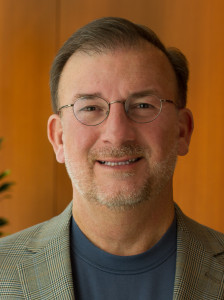 Mike Williams has served as the president and CEO of Community Hospital Corporation (CHC) since its inception in 1996. Based in Plano, Texas, CHC offers practical solutions for community hospitals to help improve effectiveness, efficiency, quality, and financial stability, while preserving and protecting community control of the hospital.
Mike Williams has served as the president and CEO of Community Hospital Corporation (CHC) since its inception in 1996. Based in Plano, Texas, CHC offers practical solutions for community hospitals to help improve effectiveness, efficiency, quality, and financial stability, while preserving and protecting community control of the hospital.
During an in-depth interview, Williams’ commitment and passion for CHC and the hospitals it serves was unmistakable and inspirational. As he talked about the mission and values of this remarkable organization, Williams shared his belief: “Success should be measured with the measure of the positive impact that you’ve made on people.” Williams and CHC certainly have made a positive impact on hundreds of hospitals, and thus, on hundreds of thousands of people across America.
When asked what first drew him to a career in healthcare administration, Williams revealed that he originally started down the path toward becoming a physician. As an undergraduate, Williams was a biology-chemistry major at the University of Alabama, and after graduation went on to spend three years in the UAB School of Medicine pursuing a medical degree. Williams explained that in his third year after 10 months of clinical work, he realized the path he was pursuing was inconsistent with his true passion.
As a member of the admissions committee and the president of his first and second year medical school classes, Williams discovered that it was those administrative aspects of healthcare that really “charged him.” Williams explained that in his third year, he took a leave of absence from medical school and asked himself: “What is it that I have enjoyed most about my medical school experience?” He realized he most enjoyed interacting with people and serving people. It was at this point that he began to recognize that healthcare is an industry where it’s more important to serve than to be served, a realization that has impacted his appreciation for and level of enjoyment working in healthcare ever since.
After this significant turning point in his life, Williams returned to college and took accounting, economics, and statistics courses to meet the prerequisites for admission into the UAB Graduate School of Health Administration. He said, “I applied to and was accepted into the graduate program in Hospital and Health Administration. After completing the program, I went to Baylor Health Care System in Dallas for my administrative residency.”
Since that time, Williams has created and enjoyed a very successful and fulfilling career in healthcare administration. Prior to serving as the founding executive of CHC, Williams served as president of Baptist Hospital in Knoxville, Tennessee. He has also served as EVP and COO of The Children’s Medical Center in Dallas, Texas, and as VP for Baylor University Medical Center, also in Dallas. He has served as the chairman of the board of the Texas Hospital Association and is a Fellow of the American College of Healthcare Executives. Williams remains active with the University of Alabama and is also very involved in his local community.
In response to a question about what he enjoys most about his position at CHC, Williams said, “Being able to make a difference.” He explained that this attitude helps him to personally make a difference daily as he engages others, and helps CHC make a difference every day by serving hospitals and their communities.
“It’s like a beam of light to the industry that says you can make a difference, you can have an improved bottom line, you can have improved quality outcomes, all while honoring your mission and serving others.”
While Williams enjoys the opportunity to meet and engage with people whom CHC serves across the nation, traveling extensively isn’t as glamorous as it sounds. He prefers being close to family members—his wife Susan, his children, and his beloved grandkids. “My wife says the only thing that is not overrated in life is grandchildren. That is such a true statement! The joy that our grandchildren have brought to us is amazing… it’s just life’s greatest reward.”
In addition to spoiling the grandkids, Williams’ hobbies include gardening, reading, walking, and Alabama football. He enjoys sharing his passion for the University of Alabama with his grandchildren, taking them to football games and teaching them the fight song. “I’m just trying to instill in them at an early age the benefits of public education in the state of Alabama!”
A proud Alabama native, Williams fondly remembered his first paid job as a teenager, working as a short order cook at a lunch spot in a Mobile, Alabama mall: “I cleaned grease traps and fried French fries, anything I was asked to do. It was fun,” said Williams, adding,
“Any job you have, your enjoyment out of it is about your attitude surrounding it. If you’ve got a great attitude, you can make what some people might think is the worst job in the world enjoyable. It’s all about a good attitude.”
What great wisdom from a senior healthcare leader who truly does have a great attitude regarding everything he does and everyone he meets!
When asked what he thinks he would do if he were to start over and choose a career other than healthcare, Williams had an immediate answer: “I would own and manage a horticultural center—a nursery.” He explained,
“To me there’s nothing more satisfying than what you can do with your hands and the dirt and the gifts that God has given us with plant life. Seeds—ugly seeds— that grow into beautiful flowers. Perennials that die and are ugly in the winter and come back up every spring with renewed vigor and life. And for a short-term sense of accomplishment, there’s nothing better than going out and mowing your grass and smelling it and looking back and saying, ‘boy, what a fun thing to have just done!’ Or to invest a little bit of time in putting tulip bulbs in the ground in the fall and then forgetting that they are there, and all of a sudden you come out one morning in the spring and there’s a reminder of God’s grace.”
Williams followed that beautiful description of his passion for living things with the amusing assertion that he hates fake plants: “If you can’t have living plants, don’t have them!” He encouraged me to examine his office. Sure enough—every plant was a living plant.
Just as Williams enjoys nurturing plant life and watching it grow, he is passionate about serving people and helping them flourish, something he is able to do through CHC. When asked to define what he hopes his legacy will be, Williams said he hopes to be remembered as “making a difference in people’s lives, no matter how small. Generating a smile, being an encourager, making someone feel like they really do make a difference—because everyone makes a difference in some fashion—and just being a caring person.”
Williams noted that this same legacy is reflected in the life of one of his mentors, Ben McKibbens, retired CEO of Valley Baptist Health System. Williams said when he first came to Texas to do his residency at Baylor, “Ben McKibbens didn’t know me from Adam.” Yet because of a shared connection through the University of Alabama, McKibbens sought him out.
“He knew my name and introduced himself. Ben has always been a mentor and always helps people feel good. Ben just does that well—probably better than anyone else I know. It’s not about him feeling good, it’s about what he can do to make you feel comfortable, to make you feel good about who you are.”
Williams attributed some of the best advice he’s ever received to another mentor, Boone Powell, Sr., who told him that, “The two words that are the most important to any human being are their first and last name. Hence as someone working with people, do all you can to remember at least their first name, and use it every time you see them.” While it may seem trivial, Williams said, “Boy, has that been sage advice!”
In addition to the wisdom and mentorship of respected senior healthcare leaders, Williams gains inspiration for his work from his deep personal faith.
“I think to be an effective leader and to continually be motivated and challenged, you have to look to your faith as a foundation for how you treat people and for what you judge success to be. I’m not a denominationalist at all, but I am a firm believer in a God that provides direction. And so that’s my motivation.”
Williams and his wife have had the opportunity to participate in a number of medical mission trips over the years, which has served as a source of inspiration for both of them. “To see how people who have so much less than we do will choose to have such a positive attitude about life is very inspiring. Also, just seeing that there is a universal language called a smile and a hug and love.”
The life and leadership of Mike Williams should serve as an inspiration to any healthcare leader who believes that “healthcare is an industry where it’s more important to serve than to be served.” What a remarkable testimony of the good that can be done in this noble industry called healthcare!
